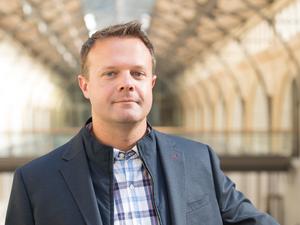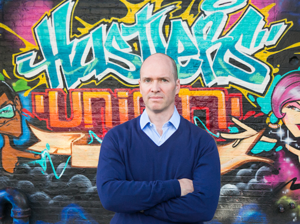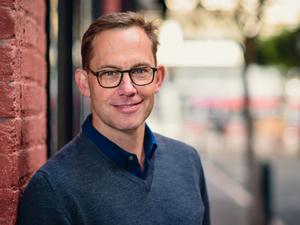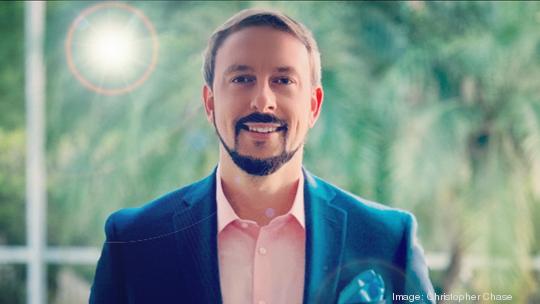
It started out as quality time with his kids. They were gaming together and Christopher Chase realized that there was an opportunity to expand access to cryptocurrency beyond gamers and beyond the borders of wealthy nations.
So he founded humanDAO at the end of September, launched it the next month and minted a token ($HDAO) at the beginning of December. The token is not currently listed on Coinbase's exchange, but is worth around 10 cents, I'm told.
"humanDAO is an open organization with the goal of improving human lives by connecting people all over the world to the new opportunities in the crypto digital economy," a welcome message on its Discord server says.
The premise of web3 is the decentralization of power, finance, decision-making, commerce and ownership on the internet. But there's no consensus about how that will best be achieved, if it's to be realized at all.
Decentralized autonomous organizations, or DAOs, are attempting to solve the problem by creating communities that govern themselves on blockchain-powered networks. The communities are funded by token sales, a portion of which is maintained as a communal pot of money to be used for whatever its members want. Each token is also worth one vote toward any decisions made by the group.
Venture capitalists could, in theory, buy these tokens to get in on the action. Jack Dorsey recently sparked some drama by tweeting that VCs will own web3, much like how they currently hold large stakes in internet companies, and thus undermine its promise as an egalitarian digital utopia.
Chase wants to avoid that dilemma with humanDAO by eschewing venture capital altogether.
"We got offers for venture capital and the offers were standard. I've seen how all these other gaming guilds do it, but raising from the community, we came out way better," Chase said. "They wanted 10% of the tokens for $2.5 million, and that's 100 million tokens for $2.5 million. We sold 20 million for almost $4 million."
Chase lives in Florida and the organization is incorporated in the Cayman Islands, according to a document shared with me. A press release locates the organization in "the metaverse." It also has dozens of part-time "builders" around the world working on the project, including more than a dozen of whom are based in the Bay Area.
Matt Arney is one of those builders. He also handles a lot of the growth side of things like partnerships and marketing from San Francisco. Arney told me that the community is also looking for more folks to help build it out including coders, writers, social media experts and people with skills in education and human resources.
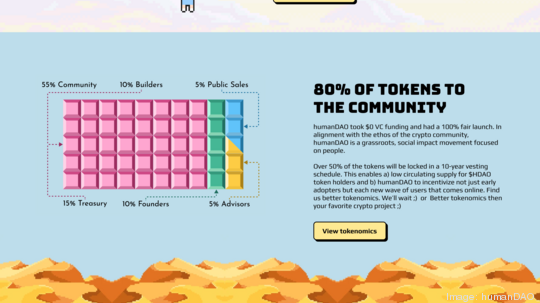
The organization on Wednesday announced that it has sold $3.7 million worth of tokens since the beginning of December. Only around 30 million tokens out of an available supply of 1 billion have been circulated to date. The remaining tokens will vest periodically over the next decade to ensure that newcomers have the ability to buy in.
With venture capitalists out of the picture, 80% of the tokens will remain at the disposal of its community including a treasury and its builders. The rest will be allocated to founders (10%), advisors (5%) and public sales (5%).
Within five days of launching the Discord server, humanDAO gained around 2,500 members just from word of mouth, and in less than three months it has grown to 20,000, Chase told me. Of those, a little over 100 are active gamers who are potentially earning income for themselves. And they're playing Axie Infinity, the crypto- and NFT-fueled universe of digital axolotls.
In order to broaden access to this income-generating game play, humanDAO offers what it calls scholarships, or the chance to play with tokens that are lent out by other users, eliminating the need for any initial investment. In order to qualify for a scholarship, members currently have to invite at least 10 other people to join the community.
It's essentially a play-to-earn structure and gamers keep 70% of what they earn. The rest goes back to the DAO, including a small portion of which is shared with people managing the gamers.
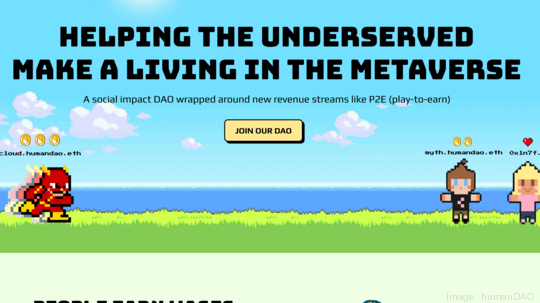
Most of its active gamers are currently in the Philippines but Chase has global ambitions for the organization and sees Nigeria, India and South America as other burgeoning markets where the internet, mobile phones and cryptocurrency are gaining traction. He wants to create more opportunities for people to generate income outside of traditional jobs, particularly in lower-income nations.
The goal is to eventually expand beyond gaming, too.
"We are a social impact project, a social impact DAO with a gaming guild inside of us. We will be doing multiple things to generate revenues outside of gaming down the road to benefit others in underserved communities," Chase said. "It's tackling an old problem with new tools."
The barriers to mobile gaming are coming down as access to cheap Android smartphones accelerates around the world but there are still a couple of obstacles to widespread adoption of cryptocurrency and play-to-earn setups.
The first is reliable access to fast internet speeds. The United Arab Emirates has the fastest median mobile internet speeds in the world at over 136 mbps, according to Speedtest.net. The U.S. ranks at number 22 with 53 mbps and the Philippines comes in at number 90 with less than 19 mbps. Nigeria and India rank even lower with median speeds around 17 mbps and 14 mbps, respectively.
The second obstacle is the ability to withdraw funds from a crypto wallet. The volatility of crypto assets may also make play-to-earn an unreliable main source of income for many people but it could, at the very least, provide supplemental income. And even in the wealthiest nation on the planet, a few hundred extra bucks every month can make a huge difference for lots of people.

